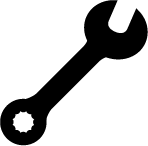The Role Of Building Codes In Water Heater Installation
If you're like most homeowners, you don't give a lot of thought to your household water heater — until the time comes to replace the unit. When you're considering a water heater installation, there's much more to think about than simply choosing the right unit for your home. However, building codes play a crucial role in ensuring the safety and functionality of your new appliance.
Here's what you need to know about the role of building codes in water heater installation:
Understanding Building Codes
Building codes are sets of rules and regulations designed to ensure the safety of buildings and their occupants. They cover everything from structural integrity to electrical systems, and yes, water heater installations.
In the context of water heaters, these codes focus on elements like proper ventilation, correct pressure and temperature settings, and prevention of potential backdrafts. They also dictate where water heaters can be installed to prevent potential hazards.
The Importance of Adherence to Building Codes
You might think of building codes as a bit of a hassle, but their purpose is to protect you. A poorly installed water heater can lead to various issues, from ineffective heating to carbon monoxide leakage, and in the worst case, even an explosion.
By adhering to the building codes, you ensure that your water heater operates safely and efficiently. It also helps to avoid potential fines, warranty problems, or issues with selling your home in the future, as non-compliance with these codes could be a deal-breaker for potential buyers.
Building Codes and Professional Installation
When you hire a professional for your water heater installation, one of the benefits is their knowledge of local building codes. Experienced installers should be up-to-date with these regulations and know how to comply with them.
It's crucial to hire a licensed professional for this reason. They not only understand the importance of these codes but they are also legally obliged to follow them. Before the work begins, discuss with them how they plan to adhere to the necessary building codes. Keep in mind that building codes are set by municipal and county governments and may vary per location. For instance, if you live in a location where earthquakes are a significant risk, your local building codes may require your water heater to be equipped with earthquake straps.
Navigating Changes and Updates in Building Codes
Building codes aren't static — they change and evolve over time. What was compliant a few years ago might not be up to code today. This is especially relevant if you're replacing an old water heater.
Share
